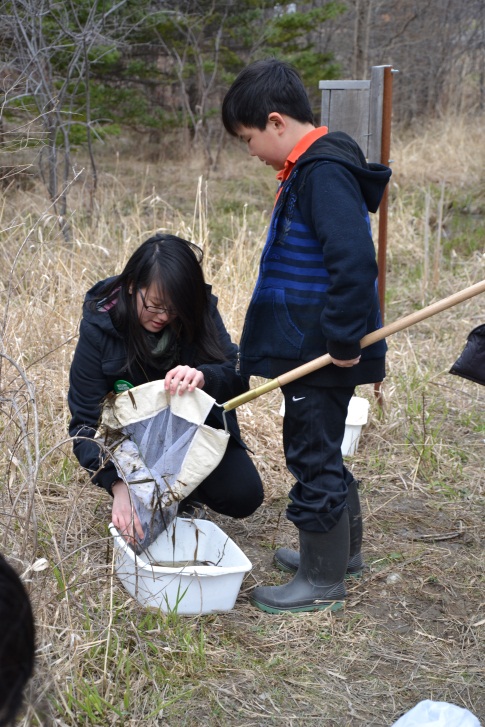Research shows that getting students active in local projects and providing them with real world models can promote understanding and change future attitudes and behaviour. Ducks Unlimited Canada’s (DUC) education programs are making it easier for teachers to enhance biodiversity education by providing experiences that increase knowledge about and appreciation for wetlands.
Project Webfoot creates curriculum-linked opportunities for students to apply their learning and connect with nature both inside and outside the classroom. This includes a field trip exposing them to the biodiversity of a local wetland, developing a foundation for further biodiversity studies as they progress through school.
The Wetland Centre of Excellence (WCE) program helps develop a sense of stewardship in secondary school students by empowering them to get involved in long-term, action-oriented wetland conservation projects that make a difference in their own communities. These projects support curriculum studies relating to Ecosystems, Sustainability and Diversity of Living Things. Participants share their knowledge and enthusiasm for biodiversity with younger students through mentored wetland field trips.
WCE projects may include:
- Studies or monitoring (species inventories, bird banding, water quality)
- Stewardship (nest boxes, plantings, annual clean-ups)
- Interpretation (trails and signage, mentored field trips)
A variety of curriculum resources and activities are available as free downloads from DUC’s website education.ducks.ca. Here, young people can also learn about our Wetland Heroes recognition for local, youth-implemented conservation projects.

